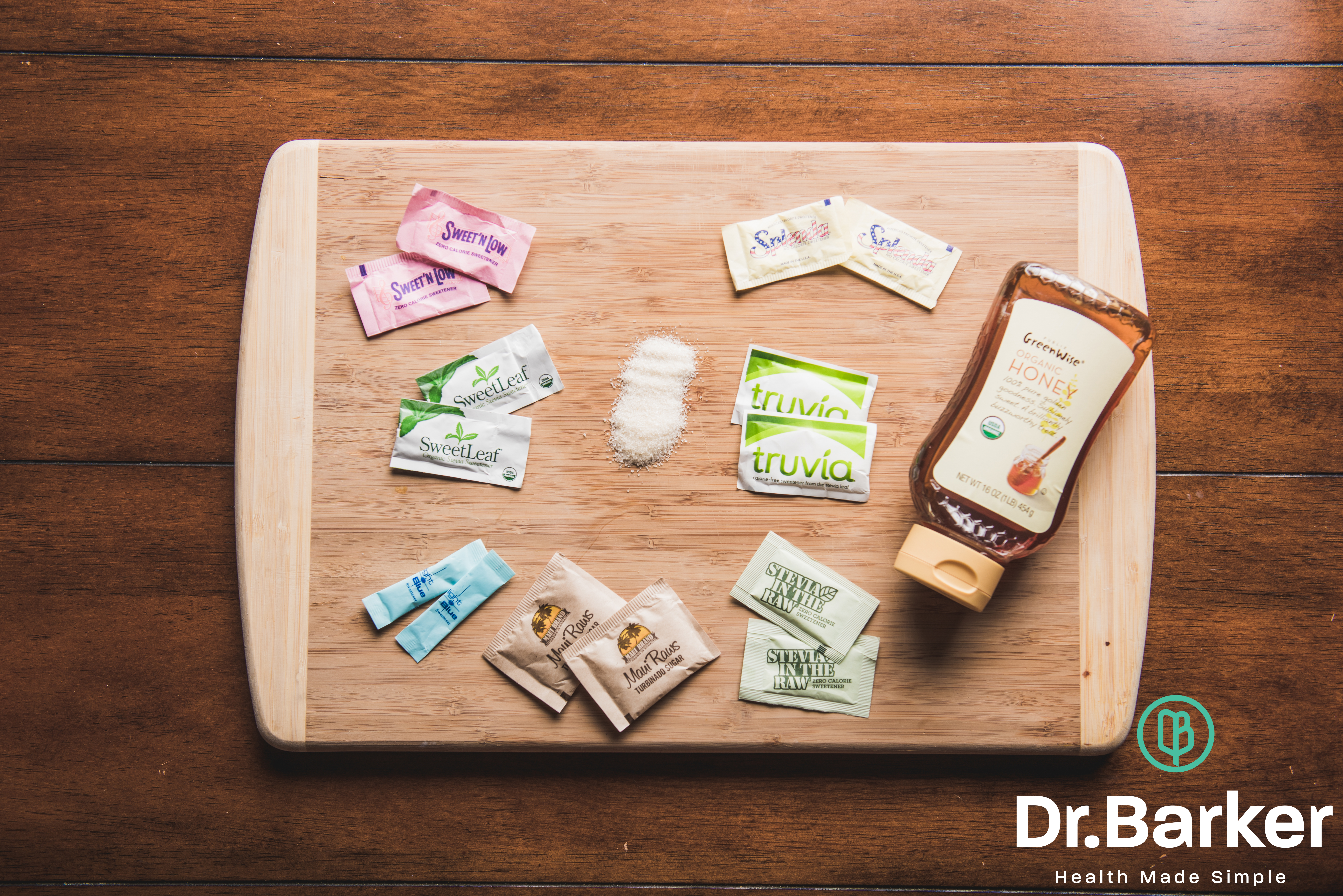The Hidden Dangers Of Artificial Sweeteners
The Hidden Dangers Of Artificial Sweeteners

Artificial sweeteners are a favorite choice for most dieters. After all, they taste just like sugar and have no calories. Not to mention that sugar has a bad rep! This harmful ingredient has been linked to cancer, obesity, diabetes, dementia, and metabolic syndrome.
What many people don’t realize is that artificial sweeteners are actually worse than sugar. Aspartame, sucralose, saccharin, and acesulfame potassiumare are the common types used today. Despite being marketed as “healthy,” these additives may cause insulin resistance, heart disease, vision loss, and brain cancer.
Here are the most popular sugar substitutes and their side effects:
Aspartame (NutraSweet, Equal)
This artificial sweetener is the most harmful to human health. Yet, it can be found in more than 6,000 products, from yogurt and diet cookies to chewable vitamins. Aspartame may trigger severe adverse reactions, such as memory loss, seizures, sleep disorders, nausea and vomiting, blurred eyesight, and depression. It also affects cardiovascular health and brain function.
Saccharin (Sweet‘n Low)
Saccharin, the world’s first artificial sweetener, has been around since 1879. Studies conducted on rats have found that saccharin increases bladder cancer risk by as much as 30 percent. Even though some experts claim that the cancer-inducing mechanisms in mice don’t apply in humans, the research is mixed. This artificial sweetener has been linked to allergic reactions, difficulty breathing, headaches, and skin diseases.
Acesulfame Potassium – Ace-K (Sunett, Sweet One)
Ace-K is 200 times sweeter than sugar and may cause cancer due to its high levels of methylene chloride, a well-known carcinogen. Regular consumption may lead to kidney disease, liver problems, depression, and visual disturbances.
Studies have found that acesulfame potassium increases insulin levels, leading to reactive hypoglycemia. This sugar substitute may also contribute to the onset of chronic respiratory diseases, leukemia, and breast tumors. Because of its stimulating effect on nerve cells, it can lead to Alzheimer’s disease, memory impairment, and behavioral disorders.
Sucralose (Splenda)
This popular sugar substitute is made from chlorinated sucrose, one of the most harmful toxins out there. It’s 600 times sweeter than sugar, causing addiction and insulin resistance. Researchers have linked splenda to an increased risk of irritable bowel syndrome, diabetes, and cancer. Daily consumption of diet soda, which contains sucralose, increases the risk of metabolic syndrome by 36 percent and diabetes by 67 percent.

Neotame (Newtame)
Neotame is up to 13,000 times sweeter than sugar and has a similar structure to aspartame. Studies conducted on humans have found that those who used this product reported migraines, back aches, abdominal pain, and digestive distress. Neotame is actually added to cattle food to fatten livestock, which says a lot about its role in the onset of obesity.
Now that you know the dangers of artificial sweeteners, seek healthier alternatives. Stevia, the only natural sugar substitute, reduces blood glucose levels and improves insulin sensitivity. This makes it ideal for diabetics and people trying to lose weight. Additionally, it has none of the side effects associated with artificial sweeteners. Other alternatives to sugar include agave nectar, honey, and maple syrup, but they’re not calorie free. I encourage you to do your research and find the sweetener that’s right for you.

